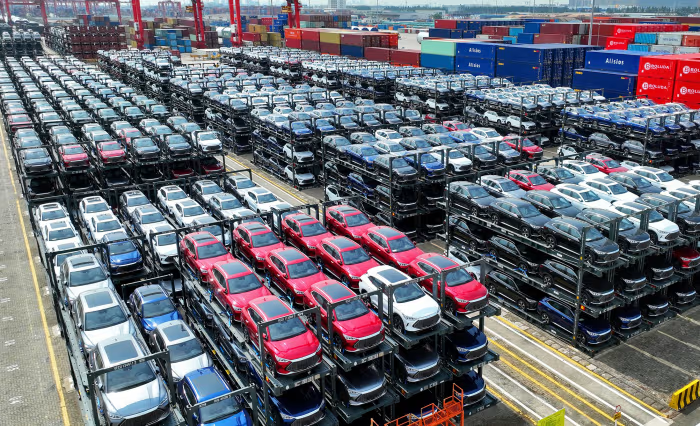Prime Minister Justin Trudeau has announced a significant move to protect Canada’s auto industry, imposing a 100% surtax on nearly all Chinese-made electric vehicles (EVs), including certain hybrids, trucks, and buses. Speaking in Halifax during a three-day cabinet retreat, Trudeau emphasized that Canada is positioning itself as a global leader in building the vehicles of tomorrow. However, he pointed out that countries like China are giving themselves unfair advantages in the global marketplace.
Trudeau described Chinese EV producers as an “extraordinary threat” to Canada’s auto and metal workers, industries that support about 255,000 jobs. As part of the broader strategy, a 25% surtax will also be imposed on imports of steel and aluminum from China, effective October 15th. Trudeau hinted that more measures could follow, possibly targeting solar panels and semiconductors.
This move mirrors a similar decision by U.S. President Joe Biden earlier this year and aligns with concerns that China’s more mature EV industry could undermine North American investments by flooding the market with cheaper vehicles.
The announcement has received widespread support from Canada’s auto and metals industries. Flavio Volpe, President of the Automotive Parts Manufacturers Association, likened China’s trade practices to “allowing a wolf inside the chicken coop,” stressing the importance of the new measures to protect North American auto investments.
However, not everyone is in favor of the surtax. Critics, including environmentalists and trade experts, argue that the measures could escalate tensions with China and potentially harm other Canadian exports, such as agricultural products. Some, like Joanna Kyriazis from Clean Energy Canada, believe a more nuanced approach could have been taken, similar to the European Union’s investigation and tailored countervailing duties.
As Canada braces for potential trade repercussions, the Trudeau government plans to limit its EV incentive program to vehicles produced in countries with free trade agreements with Canada. The coming months will reveal how these tariffs impact Canada’s growing EV industry and broader trade relations with China.
Canada Hits China EVs with 100% Tariff: Auto Industry Shake-Up





